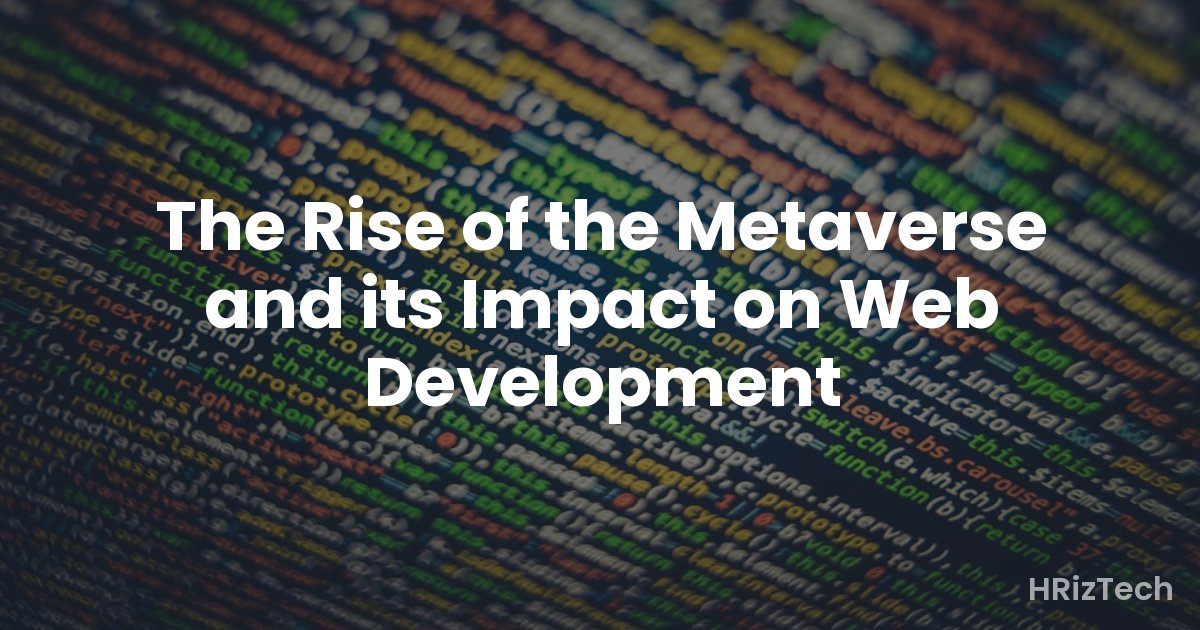The Rise of the Metaverse and its Impact on Web Development

The Rise of the Metaverse and its Impact on Web Development
- The metaverse is rapidly changing how we interact with the digital world.
- Web developers need new skills and technologies to build metaverse experiences.
- 3D modeling, immersive design, and blockchain integration are crucial.
- Opportunities abound for developers willing to embrace this new frontier.
- Understanding user experience in 3D spaces is paramount.
What is the Metaverse, Anyway?
Forget the sci-fi hype; the metaverse isn't some singular, monolithic entity. Instead, think of it as a collection of persistent, shared, 3D virtual worlds where users can interact with each other, digital objects, and experiences. It's a convergence of augmented reality (AR), virtual reality (VR), and the internet, blurring the lines between the physical and digital realms. While still in its nascent stages, its potential to revolutionize various sectors, including entertainment, commerce, education, and even healthcare, is undeniable.
The Impact on Web Development: A Paradigm Shift
The metaverse presents a significant challenge and opportunity for web developers. Traditional web development practices, focused primarily on 2D interfaces and screen-based interactions, are insufficient for creating truly immersive metaverse experiences. Developers need to adapt and acquire new skills to build applications and environments that thrive in these 3D digital spaces.
New Technologies and Skillsets
Building for the metaverse requires proficiency in a range of technologies beyond the familiar HTML, CSS, and JavaScript. 3D modeling software like Blender or Maya becomes essential for creating assets and environments. Developers will need to master game engines like Unity or Unreal Engine, platforms optimized for building interactive 3D experiences. Understanding spatial audio and realistic physics simulations is also crucial for creating immersive and believable environments. Furthermore, blockchain technology plays a significant role, enabling the creation of decentralized metaverse platforms and facilitating secure transactions within these virtual worlds.
Designing for Immersive Experiences
User experience (UX) design takes on a whole new dimension in the metaverse. Designing intuitive and engaging interactions in a 3D environment demands a different approach than designing for a 2D screen. Consideration must be given to spatial navigation, user controls, and the overall sense of presence and immersion. Developers need to think about how users will move through the space, interact with objects, and communicate with each other in a way that feels natural and intuitive.
Challenges and Considerations
The metaverse presents unique challenges. Performance optimization is critical, as rendering complex 3D environments in real-time can be computationally intensive. Ensuring cross-platform compatibility across various VR and AR headsets is another significant hurdle. Security and data privacy are also paramount, especially considering the potential for sensitive data exchange within virtual worlds. Developers need to address these challenges head-on to ensure the metaverse is secure, accessible, and enjoyable for all users.
Opportunities for Web Developers
Despite the challenges, the metaverse presents a wealth of opportunities for skilled web developers. The demand for developers proficient in metaverse technologies is rapidly growing, opening doors to exciting and high-paying roles. From creating virtual stores and experiences for brands to developing educational applications and immersive games, the possibilities are virtually limitless. Those developers willing to adapt and acquire the necessary skills will be well-positioned to thrive in this emerging field.
Specific Roles and Niches
The metaverse is creating demand for specialized roles such as 3D UI/UX designers, metaverse architects, blockchain developers focusing on NFTs and decentralized applications (dApps) within the metaverse, and immersive content creators. These roles require a blend of traditional web development skills and expertise in 3D modeling, game engines, and blockchain technology.
The Future of Web Development in the Metaverse
The metaverse is still evolving, and its full impact on web development is yet to be seen. However, it's clear that this technology is transforming the way we interact with the digital world. Developers who embrace this new frontier and acquire the necessary skills will be at the forefront of this technological revolution, shaping the future of the internet and the experiences it offers.
The future of web development is three-dimensional, interactive, and immersive. Are you ready to be a part of it?
Comments
No comments yet. Be the first to comment!